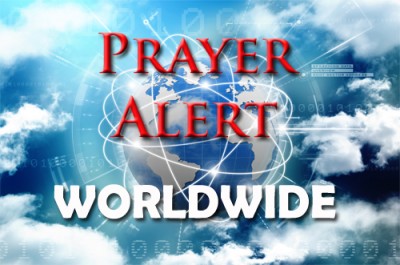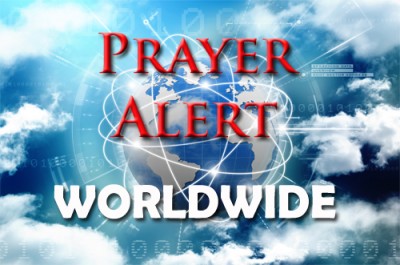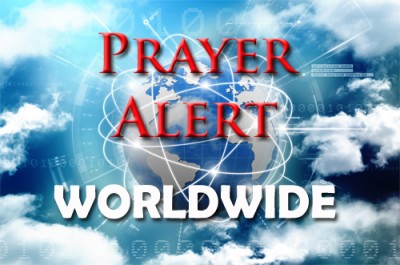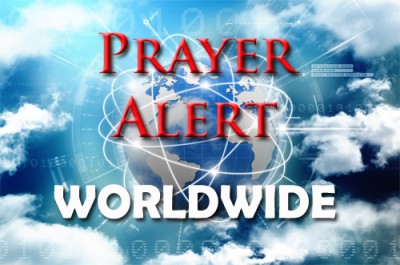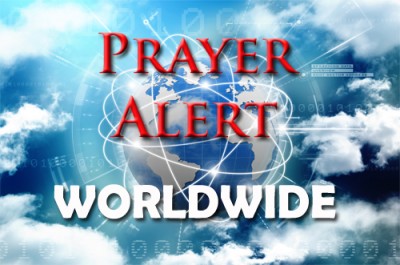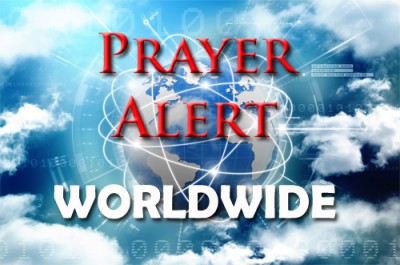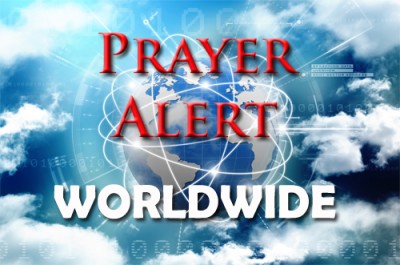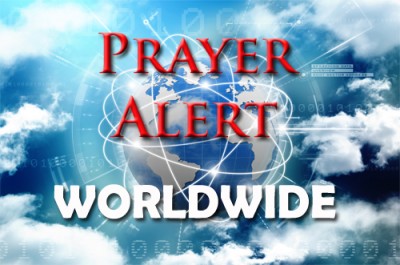Yemen: mass funeral for boys
17 Aug 2018On 12 August, a Saudi-led airstrike on Yemen killed 51 people (including 40 children) and wounded 79. The next day hundreds of mourners gathered for a mass funeral for the schoolboys. By the caskets stood signs saying, ‘America killed the children of Yemen’. The procession, organised by Houthi rebels, was one of several taking place across Yemen. The US defence secretary is sending a three-star general to help the Saudi-led coalition to investigate the strike and see if there is anything that can be done to prevent this in the future. UNICEF said the strike was the worst attack on children since the war escalated in 2015. It is now the world’s worst humanitarian crisis, with 22 million people in desperate need of aid and protection.
USA: Jesus is holding family together
17 Aug 2018The Christian relatives of Richard Russell say they are ‘stunned and heartbroken’ after the airline worker stole a passenger plane from the Seattle-Tacoma International Airport on 10 August, and was killed when he crashed 25 miles away. The FBI is leading an investigation, and President Trump was briefed on the incident, and tweeted his comments. The family said, ‘This is a complete shock to us. We are devastated by these events, and Jesus is truly the only one holding this family together right now.’ We can pray that their testimony of God’s favour in times of trouble receives as much media discussion as the terrible event.
USA: Colorado baker back in court
17 Aug 2018Less than three months after winning a Supreme Court case backing his religious freedom of expression, Colorado Christian cake artist Jack Phillips is facing yet another battle. A new complaint was recently filed against him after an attorney asked him to make a cake pink on the inside and blue on the outside, representing a transition from male to female, to celebrate a gender transition. Phillips declined to make the cake, because of his religious beliefs. On 15 August attorneys representing him and his Masterpiece Cakeshop filed a lawsuit to fight this new complaint, which they said constituted a ‘doubling down of anti-religious hostility’ by Colorado officials. They said, ‘Colorado is ignoring the message of the US Supreme Court by continuing to single out Jack for punishment and to exhibit hostility toward his religious beliefs.’
Australia: You Are Not Alone
10 Aug 2018An Australian Christian Lobby blogger states ‘The cultural climate of our day often makes the politically engaged Christian in Australia feel isolated. So many issues are beyond us. Safe schools, the rights of parents, conversion therapy, abortion, euthanasia, religious freedom, moral decay, children’s innocence, political apathy, weakened churches. The voices seeking to redefine truth, justice and morality are very loud and increasingly effective.’ He went on to say, ‘Elijah faced an infinitely more desperate set of political and cultural circumstances. He was overwhelmed and desperately cried out to God, ‘Lord, they have killed your prophets, demolished your altars, I alone am left, and they seek my life.’ God’s astonishing answer was, ‘I have kept for myself seven thousand who have not bowed the knee to Baal.’ God has preserved a great many in Australia who have not bowed the knee.’ We can pray for our Australian brothers and sisters to engage more vigorously, and confidently to make an enormous impact on Australian society.
Australia: New South Wales drought
10 Aug 2018Farmers are struggling to afford to feed their animals in Australia's most populous state, New South Wales, which is now officially declared 100% in drought. The area produces a quarter of Australia's agricultural output and farmers tell harrowing tales of failing crops, severe water shortages and inability to feed livestock; having to spend the equivalent of £5,768 per truckload of hay to feed animals, and the threat of large cullings. Cattle farmer David Graham said he was resigned to waiting for rain, adding ‘In our community you support each other through the tough times.’ Mental health group Sane Australia has said that suicide rates in rural regions are 40% higher than urban areas.
Nigeria: KILLINGS - Let the truth be told
10 Aug 2018The National Christian Elders Forum (NCEF) commented on a press release by the Nigerian Supreme Council for Islamic Affairs (NSCIA). Their opening comments were, ‘On 5 July, 2018, the NSCIA published an article titled LET THE TRUTH BE TOLD. In our candid estimation, rather than tell the truth, the article is the exact opposite of the truth. It might have been more proper to have titled it ‘Let the Taqiyya be told.’ Taqiyya is religious deception and the article they refer to said that Muslims were the targeted victims of herdsmen. NCEF stated categorically that this statement is untrue and Muslims were not victimised, Christians are the victims while the government consents to ongoing genocide and ethno-religious cleansing of communities. NCEF said that the government deliberately obscures the truth as the targets of the Fulani herdsmen are natives of Middle Belt who are mainly Christians. See also next article - Five Christian youths to be hanged.
Nigeria: Five Christian youths to be hanged
10 Aug 2018Muslim Fulani herders do not make the headlines as often as Boko Haram. Christians in the northeast state of Adamawa have fled because of Boko Haram, only to return and find their property occupied by Muslim Fulani herders. Five Christian youths have been sentenced to hang for killing one Fulani herdsman who in turn had allegedly killed 48 people. Who is stopping the violence? Where is the government's protection for citizens? Where is justice? The lack of response by Nigeria's security services is seen as complicit in crimes against Christians. The Numan Federation in Adamawa is the only predominantly Christian area remaining in northern Nigeria. In recent years migration of Muslim Fulani herdsmen into that area has increased. The judicial, military, and security agencies are all controlled by non-Christians and many fear that the Muslim President may use the violence as an excuse to cancel the 2019 elections and remain in power.
Comoros: Sunni Islam now the state religion
10 Aug 2018Sunni Islam was declared the state religion of Comoros in a referendum vote on constitutional reforms in the southeast African island. The amended constitution reads, ‘The state draws from this religion the principles and rules of Sunnite observance.’ Many believe this will have an impact on the country’s small Christian minority. Things are already very hard for indigenous Christians and this kind of specification is expected to make things even harder for them. The referendum was initiated by President Azali Assoumani and gives him the right to run for another presidential term. Previously power rotated between Comoros’ three islands every five years. In April, Assoumani suspended the constitutional court over ‘incompetence’ which observers saw as an attempt to diminish the rule of law in the country. Open Doors says, ‘In mosques and madrassas Muslim religious leaders teach anti-Christian sentiments and government officials obligate parents to send their children to madrassas.’
